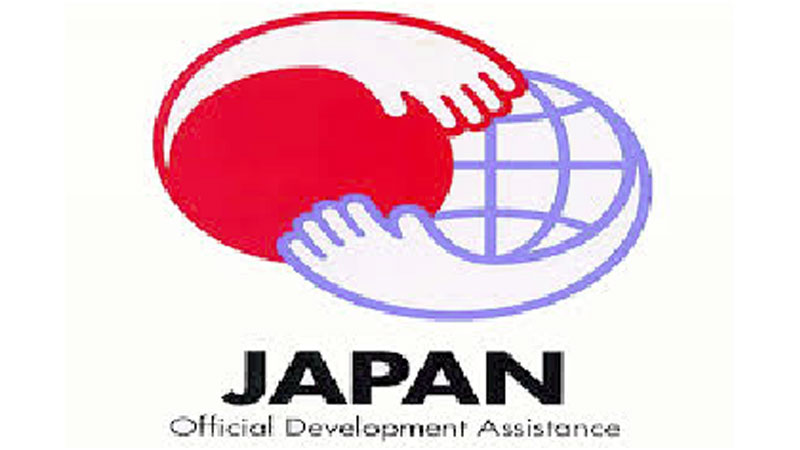Japan confirms largest-ever loan for big BD projects

Japan has confirmed the largest ever loan package to Bangladesh to help the country to be a middle-income one by overcoming the pandemic threats.
The $3.2 billion loan would be used for the big seven infrastructure projects which would help Bangladesh to achieve the SDG goals, the Japanese embassy in Dhaka on Wednesday.
Ambassador Ito Naoki and Economic Relations Division Secretary Fatima Yasmin signed the exchange of notes of the 41st Official Development Assistance (ODA) in Dhaka.
The embassy said this year’s loan package comprises assistance of seven projects amounting to JPY 338.247 billion (approximately $3.2 billion), the largest ever loan package since its (ODA’s) inception in 1974.
Based on this agreement between the counties, Hayakawa Yuho, Chief Representative of JICA Bangladesh Office, and Fatima Yasmin signed a relevant loan agreement.
Japan has been the single largest bilateral donor for Bangladesh since 2012,and the total amount of its aid as Yen Loan has reached $22 billion.
The projects are: (1) Jamuna Railway Bridge Construction Project (II) (loan amount: 89.016 billion yen) (2) Hazrat Shahjalal International Airport Expansion Project (II) (loan amount: 80 billion yen) (3) Dhaka Mass Rapid Transit Development Project (IV) (loan amount: 72.194 billion yen)
(4) Dhaka Mass Rapid Transit Development Project (Line 5 Northern Route) (I) (loan amount: 55.696 billion yen) (5) Chattogram – Cox’s Bazar Highway Improvement Project (E/S) (loan amount: 1.906 billion yen)
(6) Food Value Chain Improvement Project (loan amount: 11.218 billion yen)
(7) Urban Development and City Governance Project (loan amount: 28.217 billion yen)
The interest rate of the Japanese soft loan is only 0.65 % per annum with the repayment period of 20 years after the grace period of ten years.
Up to the present, the government of Japan has provided approximately $13 million as the emergency support to tackle COVID-19 in Bangladesh through international organizations, as well as provided PPE to hospitals through JICA.
Additionally, on 16 July Japan and Bangladesh signed the Exchange of Notes on Japanese Grant aid “Economic and Social Development Programme”(approximately $10 million) for the medical equipment including CT Scanner, X-ray Machine.
These aids focused on the medical and health sectors currently combating the novel coronavirus.
On 5 August, both countries signed Exchange of Notes of the COVID-19 Crisis Response Emergency Support Loan (approximately $331 million), which is the first budget support from Japan to Bangladesh.
The purpose of the financial assistances is to provide funding for additional financial expenditure by the government of Bangladesh to implement the economic stimulus package.
“Japan will continue to extend its support for the development of Bangladesh as the country is on its way to achieve the highest growth in Asia in this decade of the century,” the embassy said.
Summary of each project
(1) Jamuna Railway Bridge Construction Project (II)
The objective of the project is to improve the capacity and safety of transportation by constructing a dedicated railway bridge over the River Jamuna in parallel to the existing Bangabandhu Bridge (Jamuna Multipurpose Bridge), thereby contributing to an efficient logistic and passenger network within the country and with neighboring countries. This project will contribute to the achievement of SDGs Goal 9.
The planned implementation period is March 2024 – when the facilities are put into service.
(2) Hazrat Shahjalal International Airport Expansion Project (II)
The objective of the project is to meet future demand for air transportation and to improve airport capacity, convenience and safety, by constructing Terminal 3, an international passenger terminal, cargo terminals and other infrastructure and facilities at the Hazrat Shahjalal International Airport in Dhaka, thereby contributing to further economic growth in Bangladesh. This project will contribute to the achievement of SDGs Goal 9.
It will be completed by April 2024 when the facilities will be put into service.
(3) Dhaka Mass Rapid Transit Development Project (IV)
The objective of the project is to alleviate traffic congestion and mitigate air pollution in Dhaka City by constructing a mass rapid transit system, thereby contributing to regional economic development and improving urban environment. This project will contribute to the achievement of SDGs Goals 9 and 11.
It will be completed by December 2022.
(4) Dhaka Mass Rapid Transit Development Project (Line 5 Northern Route) (I)
The objective of the project is to reduce the traffic congestion in Dhaka City and adjoining areas by constructing a mass rapid transit system, thereby contributing to the economic growth and improving the urban environment in Bangladesh. This project will contribute to the achievement of SDGs Goals 9 and 11.
It will be completed by November 2029.
(5) Chattogram – Cox’s Bazar Highway Improvement Project (E/S)
The objective of the project is to achieve smooth cargo transportation between Matarbari Port and Chattogram by improving roads at congested town areas along National Highway 1, thereby contributing to improvement of logistics in Bangladesh and to the economic growth of the surrounding area. This project will contribute to the achievement of SDGs Goals 3 and 9.
It is scheduled to be completed by September 2023.
(6) Food Value Chain Improvement Project
The objective of the project is to improve credit access for agribusinesses and food processing industries, and to enhance their capacity for business development, food processing, and food safety by providing concessional financing and technical assistance, thereby contributing to the improvement of food value chains in Bangladesh. This project will contribute to the achievement of SDGs Goals 1, 2, and 8.
It will be completed by September 2026.
(7) Urban Development and City Governance Project
The objective of the project is to improve urban functioning by improving urban infrastructure and strengthening city governance related to infrastructure development in the target cities, thereby contributing to economic growth, improvement of living conditions and sustainable cities. This project will contribute to the achievement of SDGs Goal 11.
It will be completed by June 2026.




